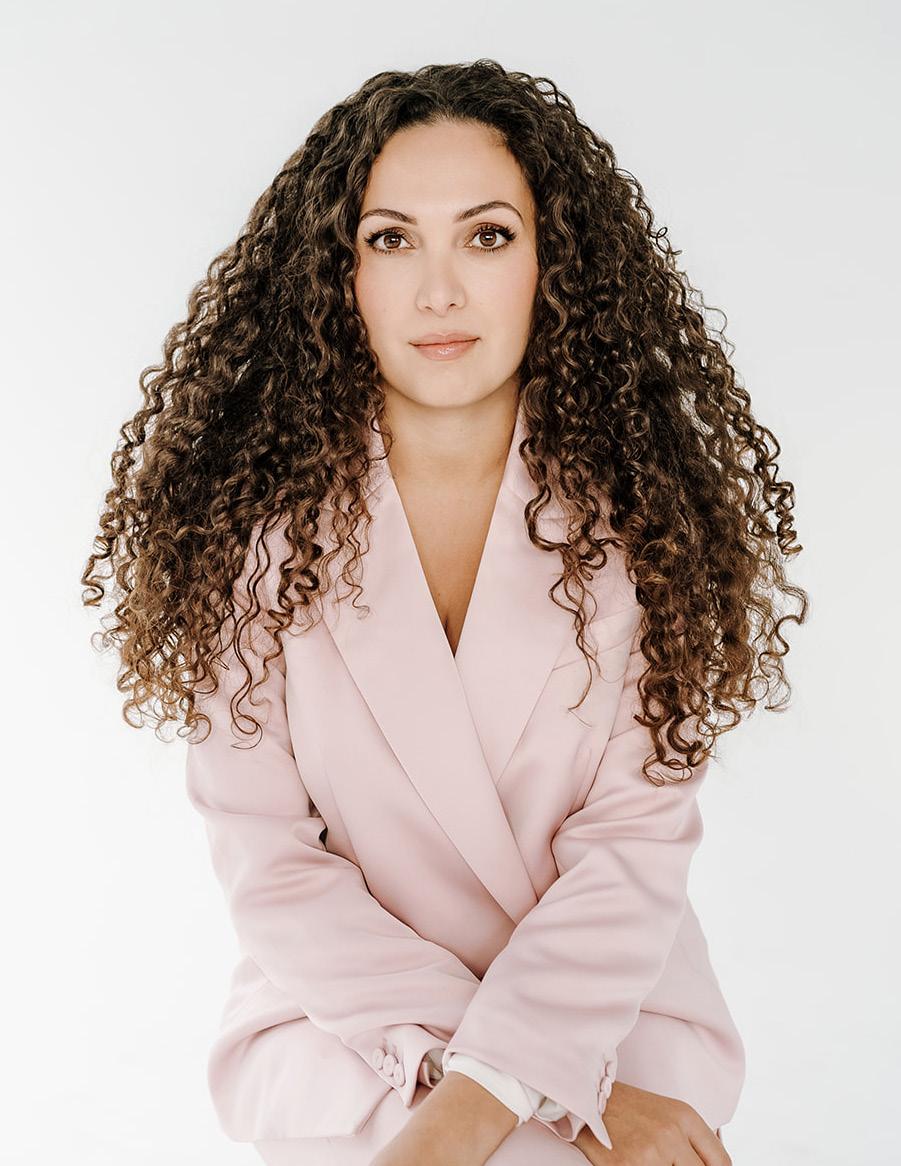FINANCIAL THERAPY Tools



Aseel El-Baba is a renowned financial therapist and mental health expert with over a decade of experience in Canada’s financial industry. She started her career on Bay Street, managing portfolios worth over $100 million. However, Aseel soon identified a critical gap in the industry—one that neglected the emotional and psychological aspects of financial health.
After completing a comprehensive five-year psychotherapy program, Aseel pivoted to Financial Therapy, approaching financial challenges through a trauma-informed lens. She believes that financial health is deeply intertwined with mental and emotional wellbeing.
As a member of both the Financial Therapy Association and the Canadian Association of Psychodynamic Therapy, Aseel brings innovative insights to the field, making her a sought-after specialist for individuals and organizations striving for holistic financial wellness.
Aseel’s work is driven by the belief that healing our relationship with money can be transformative personally and globally.



The financial therapy tools provided in this workshop are designed to integrate emotional, psychological, and financial wellbeing. These tools are practical and adaptable. They aim to support both practitioners and clients in addressing financial challenges through a holistic lens.
Each client’s financial journey is unique. Feel free to adapt the tools to best meet your client’s specific needs, taking into consideration your training and qualifications.
Many of these tools can be used in collaborative settings. Whether in group workshops or one-on-one sessions, engage clients in discussions around their financial goals and emotional responses to money.
By using these tools with a sense of genuine curiosity and a compassionate approach, you’ll help clients build healthier relationships with money, leading to better financial outcomes and overall wellbeing.
PURPOSE: To help clients recognize past financial resilience and build confidence for the future

This exercise helps clients focus on their capacity to survive difficult times and build on their strengths moving forward.
• Ask clients to create a timeline of their life, marking significant financial events (both positive and negative)
• For each event, invite them to write what they learned or how they showed resilience (ex: I love my job but learned to budget better OR I lost my life savings but created solid friendships that supported me through)
• See if there are any patterns clients can identify (ex: as soon as unexpected money comes in, it goes out OR negative situations where self-sabotage is evident)

1 2 3 4 5 6 7 8 9 10 11 12
What emotions came up during the exercise?
What surprised you about your responses to financial stress in the past?
Do you notice any patterns in how you handle financial adversity?
How did you approach problem-solving when faced with financial challenges thus far?
What strengths did you notice in yourself while building financial resilience?
What challenges or obstacles felt difficult to overcome?
How do your past experiences with money influence your financial situation today?
What resources or support systems do you currently rely on?
How can you strengthen your financial resilience in the future?
What does financial resilience mean to you personally?
How can you apply what you learned from this exercise to your everyday financial decisions?
What are you committed to change?
PURPOSE: Create space for clients to acknowledge and release their financial fears


• Create a calm and safe environment for your clients
• Help them identify their financial fears and write them down (encourage them to be as specific as possible about what truly worries them)
• Invite them to acknowledge and accept their fears without judgment
• Support them in visualizing the release of the fear (out of their mind and body)
• Guide them in a symbiotic release (ex: tear up or burn the paper)
• Help clients set positive intention to replace the released fears with positive mindset
• Guide clients to breathe deeply and reflect

1 2 3 4 5 6 7 8 9 10
What specific financial fears surfaced during the ritual?
How did releasing those fears make you feel?
What old beliefs about money are you ready to let go of?
How do these fears impact your financial decisions?
What positive feelings emerged after releasing the fear?
How can you replace fear with trust in your financial journey?
What actions can you take to reinforce your financial security?
How does your body feel after releasing financial fear?
What supportive habits will help you stay fear-free around money?
What new financial intention do you want to focus on moving forward?
PURPOSE: Empower clients to visualize their financial goals and get in touch with their ideal future self


• Help the client get into a calm and focused state before visualizing their future self
• Ask the client to imagine themselves into the future if nothing changes about their current situation. Encourage them to visualize the details of their life, focusing particularly on their financial situation
• Questions to guide the visualization:
• Where are you living?
• What type of work are you doing?
• How do you look like? What are you wearing?
• How do you feel about your financial situation? About life in general?
• How are the other aspects of your life (health, family, social life, etc.)?
• Now repeat the visualization but with the assumption that their financial situation drastically improved.

1 2 3 4 5 6 7 8 9 10
What was the most important difference between the two versions?
How do you want your future self to feel about money?
What habits does your future self have that support financial security?
What financial goals has your future self accomplished?
How does financial security impact your future self’s daily life?
What changes do you need to make now to align with your future self?
How does your future self handle financial challenges?
What resources or support does your future self rely on for financial stability?
How does financial security influence your future self’s relationships?
What is the biggest difference between your current and future self’s financial mindset?

These tools represent just a glimpse of our extensive resources, tailored to empower individuals, community leaders, and professionals in both mental health and finance. To learn more about our comprehensive training and certification programs, visit consciouseconomics.ca
Conscious Economics is an experiential learning platform created for visionary leaders who want to thrive in the New Economy. As society becomes increasingly mindful of how business impacts people, communities, and the planet, Conscious Economics is leading this shift. Through our unique Conscious Economics MethodologyTM, we combine emotional literacy, neuropsychophysiology, financial therapy, and creativity to demonstrate that it’s possible to: